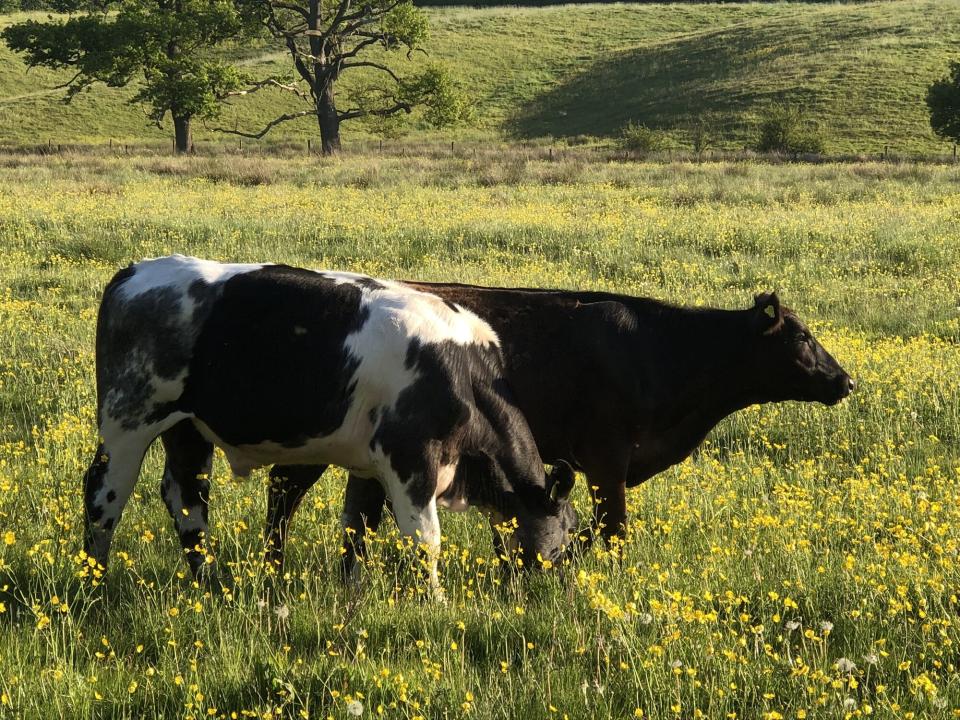UK 'Bank for Farmers' close to raising £20m for launch

Britain’s first bank for farmers in almost 100 years is close to raising up to £20m to fund its launch.
Oxbury Bank is in talks to raise between £15m ($19m) and £20m from investors drawn from the agriculture industry.
Tim Coates, co-founder of Oxbury, said the funding was for the “most part secured.” He declined to name specific investors.
“I have spent a lot of this year, as with everyone else, on Zoom calls — but trying to persuade people to part with their money, which is a slightly different experience to being able to press the flesh,” Coates told Yahoo Finance UK in an interview. “It’s an interesting challenge.”
READ MORE: Digital bank for 'mass affluent' set to launch later this year
The funds will be used to meet regulatory capital requirements and allow Oxbury to launch, pending full approval. Coates hopes to be able to launch before the end of the year.
Oxbury will be the first agriculture-focused bank in Britain for almost 100 years. The last bank to launch targeting farmers in the UK was the Agricultural Mortgage Corporate, which was set up in 1928. (It is now a subsidiary of Lloyds Bank.)
“The agricultural sector has been, and continues to be, quite poorly served by banking,” Coates said.
READ MORE: UK government to hand farmers £2.9bn to replace EU subsidies
Mainstream banks have pulled back from lending money to the UK’s £5bn agricultural sector in the decade since the financial crisis. Suppliers of things like seed, feed, and pesticide have stepped in to fill the gap with trade credit, Coates said. However, that has led to higher costs of raw materials.
“Farmer might not [realise] they are equivalently paying double digit interest rates on those raised prices — but they are,” Coates said.

Oxbury will offer working capital facilities to farmers to help fund day-to-day costs, as well as terms loans for bigger purchases such as machinery. The bank has lined up £70m of potential lending, much of which could be done on day one, Coates said.
Farming requires tailored financing because of the unique cashflow profile of the industry, he said.
“If you plant a crop in September, you may not harvest until the following year depending on the weather,” Coates said. “If you’re growing livestock, that can take multiple years. There is quite a lot of input cost at the beginning and the output cost can be not even at the end of that process but even further down the timeframe.”
READ MORE: UK could compensate farmers forced into mass slaughter of sheep in no-deal Brexit
Coates co-founded Oxbury in 2018 with James Farrar, who previously helped set up startup bank ClearBank, and Nick Evans, a former director of Bank Of Scotland's agricultural team.
Coates has a background in both finance and farming — he used to work at the UK’s Financial Conduct Authority before moving into farming as part of succession planning about five years ago. Coates currently manages about 1,500 acres in Oxfordshire, where he grows cereals, oil seeds, and pulses.

Oxbury, which secured a provisional banking licence in January, has already raised £15m to fund its development thus far and is operationally ready to launch.
“It’s a very farmer led development,” Coates said. “All our shareholder to date are in agriculture, from other farmers up to larger agri business. It’s very important for us that we’re designing products that the farmer wants and can use effectively.”
When it does launch, it will do so at a delicate time for the UK’s farming sector. Brexit means the EU is poised to withdraw subsidies for the UK farming sector worth £3.5bn. Details of the UK government scheme to plug the funding gap have yet to be published.
READ MORE: More than half of farms 'could go out of business' under a no-deal Brexit
“Yes it’s uncertain,” Coates said. “It’s the uncertainty rather than the change that’s unhelpful.”
COVID-19 has also led to shortages of seasonal labourers to pick crops, leading to headlines about fruit and vegetables left to rot in the fields.
“The fundamentals haven’t shifted,” Coates said. “We’re only running at 60% food self-sufficiency here in the UK. If this year has focused people’s minds on anything, it’s that actually we live in very fractious supply chains. It would not be a bad thing if that was a higher number. That is actually going to require a sensible approach with private money, which is where we step in.
“The inflection point is coming and it is the right time therefore to consider how farm businesses should go forward.”

 Yahoo Sport
Yahoo Sport 





































